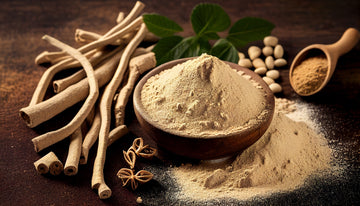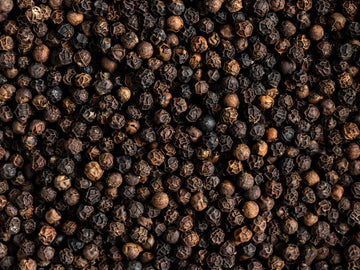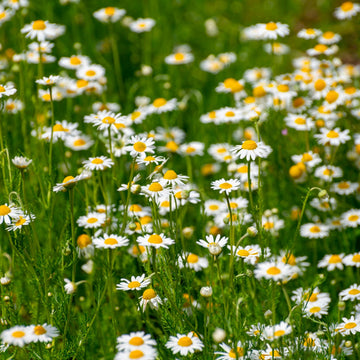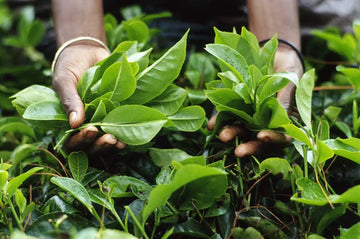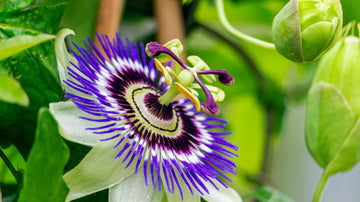Ashwagandha is a centuries old Indian Ayurvedic plant commonly used to reduce the stress hormone called cortisol. As a result, many studies and users find it reduces levels of anxiety and stress, and improves their ability to sleep.
Ashwagandha's binomial name is Withania somnifera. It's derived from the Sanskrit words "ashva" meaning "horse", and "gandha" meaning "smell", referencing that the plant root has a strong horse-like odor. The species name sominfera is from the Latin word for "sleep-inducing".
 Ashwagandha root harvested in central India
Ashwagandha root harvested in central India
How Does Ashwagandha Reduce Anxiety, Stress, and Depression?
Ashwagandha is considered an adaptogen, which is a term for plants and herbs that help the body respond to stress and return back to homeostasis. Adaptogens such as ashwagandha, rhodiola, and ginseng have surged in popularity, partly due to endorsements from experts like Andrew Huberman, and has even developed a community on Reddit with countless success stories.
To understand how ashgawandha works, we first have to understand the GAS stress model. Here are three stages to a stress or anxiety response:
1) Alarm Stage
When the body faces a stressful situation (or even perceives danger through your thoughts!) it raises an alarm known as a fight, flight or freeze response. Next, the body releases hormones to help you overcome the situation such as adrenaline and cortisol that can raise your blood pressure, heart rate, and make you feel more alert. They also produce uncomfortable and unwanted physical symptoms such as rapid heartbeat and sweating.
2) Resistance Stage
After the initial shock of the stressor, the body enters the resistance stage if it continues. During this phase, the body attempts to return to a state of balance while still remaining on high alert. The body adapts to the stressor and tries to cope with it.
3) Exhaustion Stage
If the stress continues beyond the body's capacity to deal with it, the body enters the exhaustion stage. This phase occurs when the body's physical and emotional resources are depleted by the prolonged or intense stress response. The exhaustion stage can lead to a variety of physical and psychological health issues, such as burnout, depression, anxiety, cardiovascular problems, and a weakened immune system.
 The three stages of the GAS model
The three stages of the GAS model
It is thought that the withanolides in ashwagandha are the active compounds which provide relief. Adaptogens like ashwagandha increase the length of the resistance stage which provides sustained energy and cognitive performance to overcome a situation it finds threatening. By staying in the resistance stage longer, the body can avoid the crash, anxiety, and depression hanging out in the exhaustion phase. It carries this out by having a modulating effect on the Hypothalamic-Pituitary-Adrenal (HPA) axis, the body's stress response system.
Does Ashwagandha Help with Anxiety and Stress?
There have been numerous studies testing ashgawandha's effects on stress and anxiety, among other bodily effects such as fertility and pain. In 2021, there was a systematic review of studies around ashwagandha [1]. In total, 491 adults with self-reported high stress or diagnosed anxiety disorder were randomized to take ashwagandha or placebo for 6 to 8 weeks. The studies used various forms of ashwagandha like KSM66 and Sensoril. Overall, the studies found that ashwagandha significantly lowered anxiety and stress levels, sleeplessness, fatigue, and measured serum cortisol levels, compared with placebo. Linked below are another two studies that found positive effects of perceived stress and serum cortisol [2] [3].
Does Ashwagandha Help with Sleep and Insomnia?
Many of the studies conducted on stress and anxiety found positive effects on sleep. Additionally, from the few clinical trials specifically for ashwagandha effects on sleep, the findings were also positive [4]. For example in one study, 150 subjects with self-reported sleep issues such as insomnia and lack of restful sleep, were assigned ashwagandha root and leaf extract or a placebo for 6 weeks [5]. Sleep improvements were 72% in the ashwagandha group vs 29% in placebo. In addition, participants taking ashwagandha extract showed improvements in sleep efficiency (time in bed spent in sleep), total sleep time, sleep latency (time taken to fall asleep), and awakening after sleep onset as assessed by actigraphy, which involves wearing a watch monitor on the wrist to measure body motion. They also reported improvements in quality of life.
How to Take Ashwagandha?
When should you take ashwagandha?
Ashwagandha can be taken anytime day or night, it is personal preference. Many users may find it energizing and take it in the morning, while others may find it makes them too relaxed to be productive and they take it in the evening.
Should you take ashwagandha with food?
Ashwagandha can be taken with or without food. Some users may find it leads to mild stomach discomfort so they take it after a meal or small snack.
What dose of ashwagandha should you take?
For ashwagandha extract, most studies used dosages between 245 to 600 mg/day. Anecdotally, users on the ashwagandha Reddit community report 400mg to 600mg being a sweet spot for many, although a small minority may only find relief at even higher doses.
One serving of ZenHighs provides 400mg of high quality Indian ashwagandha. ZenHighs differs from competitors in that it is combined with 6 other synergistic and clinically proven ingredients to provide greater relief from stress and anxiety than ashwagandha alone.
How long does it take to feel Ashwagandha?
Ashwagandha users on the ashwagandha Reddit community report they can feel the calming and anxiolytic (anti-anxiety) effects of the plant within 30 min to 60 min. However, as seen in most studies, ashwagandha takes up to 6 or more weeks to reach its full effect.
ZenHighs is a potent blend of 7 studied and proven adaptogenic plants. While ashwagandha takes its time in ramping up to its full effects, the lemon balm, l-theanine, and others in ZenHighs are dosed at the studied levels which can do the heavy lifting in providing a calm and balanced mind. Learn more about ZenHighs on the product page.
References
- Lopresti AL, Smith SJ. Ashwagandha (Withania somnifera) for the treatment and enhancement of mental and physical conditions: A systematic review of human trials
 . Journal of Herbal Medicine 2021;28:100434.
. Journal of Herbal Medicine 2021;28:100434.
- Remenapp A, Coyle K, Orange T, Lynch T, Hooper D, et al. Efficacy of Withania somnifera supplementation on adult’s cognition and mood. J Ayurveda Integr Med 2022;13:100510. [PubMed abstract]
- Gopukumar K, Thanawala S, Somepalli V, Rao TSS, Thamatam VB, et al. Efficacy and Safety of Ashwagandha Root Extract on Cognitive Functions in Healthy, Stressed Adults: A Randomized, Double-Blind, Placebo-Controlled Study. Evid Based Complement Alternat Med 2021;2021:8254344. [PubMed abstract]
- Cheah KL, Norhayati MN, Husniati Yaacob L, Abdul Rahman R. Effect of Ashwagandha (Withania somnifera) extract on sleep: A systematic review and meta-analysis. PLoS One 2021;16:e0257843. [PubMed abstract]
- Deshpande A, Irani N, Balkrishnan R, Benny IR. A randomized, double blind, placebo controlled study to evaluate the effects of ashwagandha (Withania somnifera) extract on sleep quality in healthy adults. Sleep Med 2020;72:28-36. [PubMed abstract]

